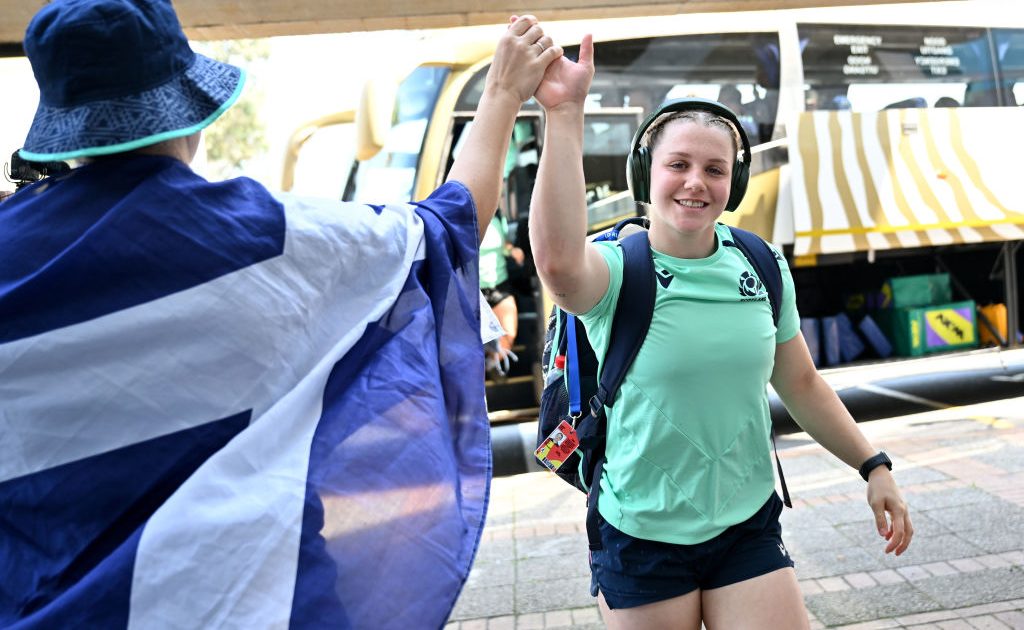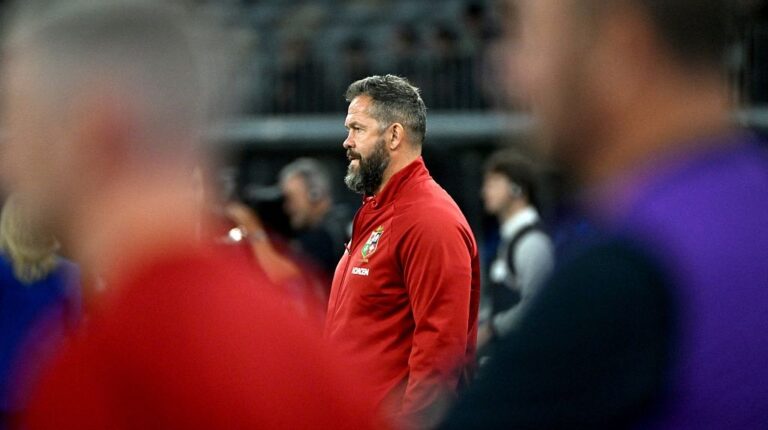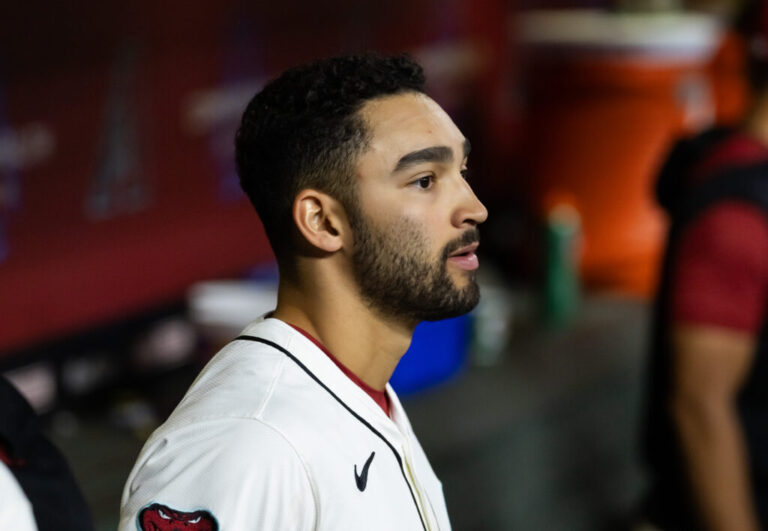
Scotland women’s young gun Alex Stewart is taking heart from the way England men’s international Henry Slade has spoken publicly about living with type 1 diabetes and playing high level rugby as she begins her own journey with the condition.
In April, midway through the Guinness Women’s Six Nations, the 21-year-old back-row was diagnosed with diabetes just days after the doctors had also confirmed she has coeliac disease.
Type 1 diabetes is a condition which means your body cannot make a hormone called insulin. This causes the level of glucose in your blood to get too high.
Coeliac disease is an autoimmune condition where the immune system mistakenly attacks healthy tissue. Following a gluten-free diet helps control symptoms and prevents long-term complications from the condition.
In between the two bits of news, Stewart appeared off the bench against Italy, but that was to be the end of her 2025 Six Nations after round three.
It all started around March this year as the Championship was about to get going. Stewart thought she had some sort of fatigue after a busy time coming back from WXV 2 late on in 2024, going straight into the first semester of third year at university, playing a bit for her club and then captaining Edinburgh Rugby in the Celtic Challenge.
“I had quite a lot of responsibility and lots of things going on in my head. I’m pretty energetic and I’m mostly up for training and looking forward to stuff, but everything felt like quite a big struggle,” said the player who came through the ranks at Liberton High School, Lismore and Edinburgh Harlequins before moving onto current club Corstorphine Cougars.
“At the start of Six Nations it was definitely a bit of a mystery in terms of what was going on and the Scotland medics were trying to find out.
“I felt like I wasn’t at my best, I was feeling really fatigued and felt like I was running on fumes. I wasn’t feeling energetic, I wasn’t feeling like the previous Alex and at times I didn’t feel fit and ready.
“I felt quite weak, I felt like I wasn’t strong or anything and I kind of noticed some changes and I was losing a lot of weight. The main thing was a lack of energy and my mood was quite low.”
Caps nine and 10 for her country came for Stewart, who was already working to a modified training plan to conserve energy, off the bench against Wales and France while medics were putting a finger on exactly just what was up.
Then it all came to a head around the Italy game at Hive Stadium on April 13th with the bits of medical news mentioned being delivered on the Thursday before it and the Monday after it.
“After the coeliac news on the Thursday I felt like if I changed my diet going forward I’d feel a lot stronger and I played 10 or so minutes off the bench against Italy on the Sunday,” Stewart, who has currently paused her law degree at Edinburgh University to focus on rugby, recounted.
“Then on the Monday morning I woke up to a missed call from my GP and they said that I had to urgently come in to give a a urine sample because I might have diabetes.
“That was a massive jump from coeliac disease being the only issue and when I was diagnosed with diabetes and the news hit it was kind of a shock and it was really upsetting to be honest.
“It also cut short my Six Nations campaign, but I am back now, I am learning all of the time and I am managing things with the help of others.”
Currently Stewart is part of the 38-strong extended Scotland training squad that will be cut to 32 in early August for the World Cup in England.
To manage her type one diabetes, Stewart now has an insulin pen that helps her inject safely and take the right dose while she is working closely with Scotland Women’s doctor Morag Robertson and performance nutritionist Lara Wilson in terms of her training load and diet to help with the condition and the coeliac disease.
And, while the back row has had a lot to take in of late, Slade’s story has left her in no doubt that she can beat recent setbacks and make it to the big dance in England in August and September.
“My aim, absolutely, is to get to the World Cup. I think, outside of rugby, I’m taking a foot off the gas, trying to focus on myself and, actually, I am not putting a whole lot else into my life just now.
“That means I can feel more like myself and I can focus on getting to the World Cup. I’ve got a lot more things to think about now in terms of how I go about everyday life than before, but rugby is still a big focus.
“These issues are definitely manageable. Henry Slade is a professional rugby player with type 1 diabetes, so there’s no reason that it should affect my career, I just need to keep checks on everything now.
“I definitely feel like I’m new to the whole situation and it is a big change, but these are just things that I need to manage and I am constantly checking in with the medics and checking my blood sugar levels.
“I just want to share my journey and, as I learn about myself, I want to inspire people who have coeliac disease or diabetes to believe that they can definitely still do what they want to do because that’s what I’m doing.”






